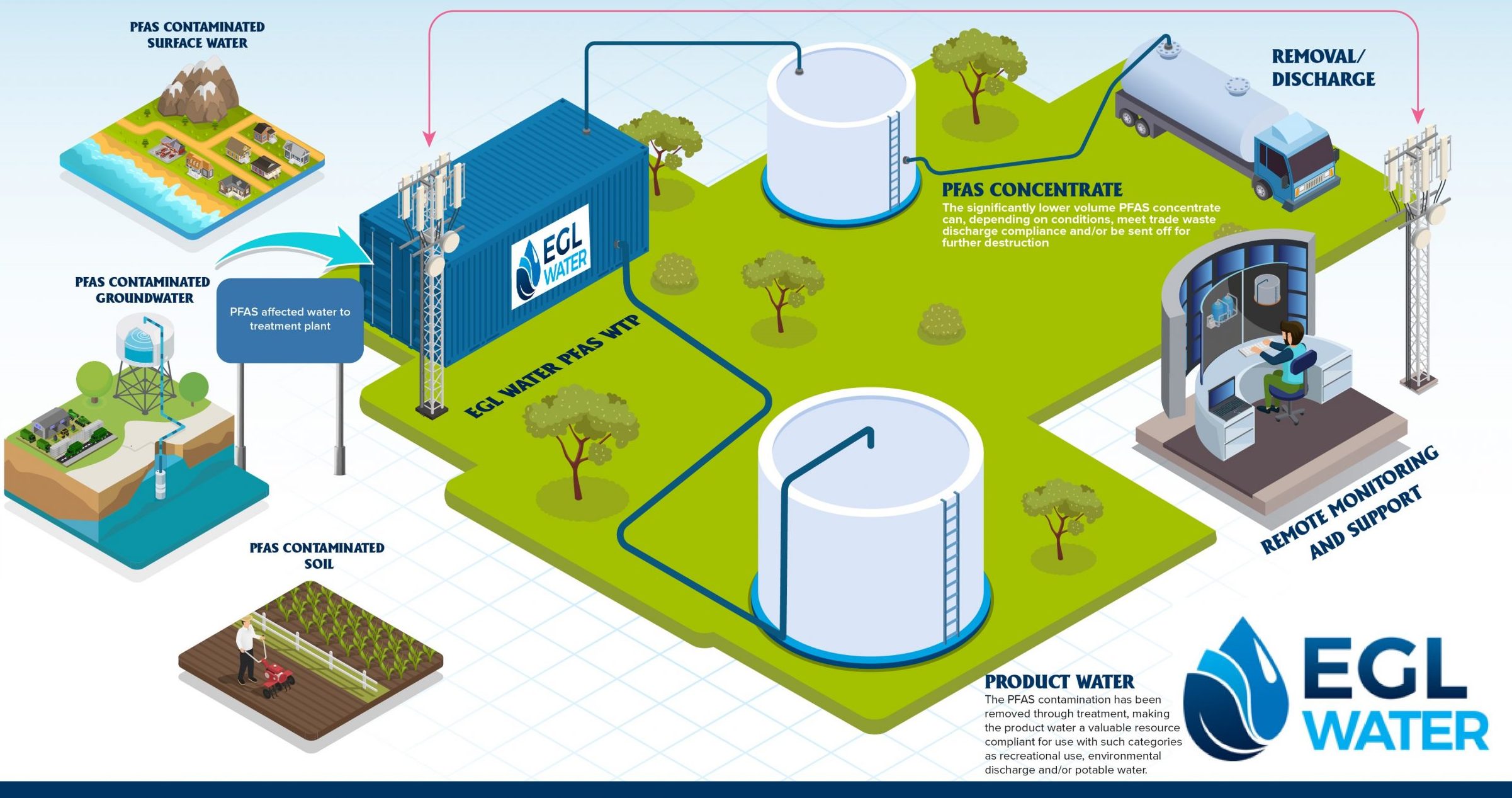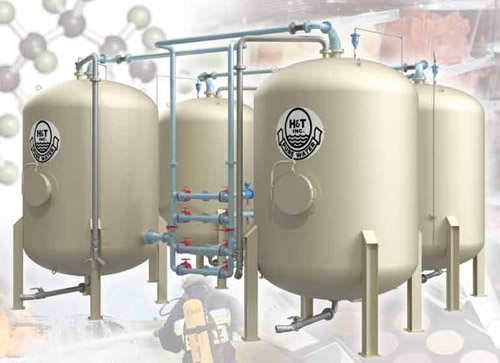Just How PFAS Therapy Makes Certain Clean and Sustainable Water
The presence of PFAS, generally known as "forever chemicals," poses considerable difficulties to water top quality and public health and wellness. The implications of these therapies expand beyond immediate health advantages; they raise vital questions about lasting water administration strategies that should be addressed to make sure a resistant future.

Understanding PFAS Contamination
PFAS, or per- and polyfluoroalkyl compounds, have actually emerged as a substantial environmental issue because of their extensive prevalence and perseverance in the atmosphere. These artificial chemicals have actually been utilized in numerous commercial applications and customer products, including non-stick cooking equipment, water resistant clothing, and food packaging, due to their unique buildings such as water and grease resistance.
The contamination of soil and water resources by PFAS takes place largely with commercial discharges, firefighting foam use, and leaching from garbage dumps. pfas management. When launched, these substances are resistant to destruction, causing their build-up in the environment. This determination elevates critical problems, as PFAS can travel fars away via groundwater and surface water supply, influencing drinking water products and environments

Health And Wellness Threats of PFAS
The perseverance of PFAS in the environment elevates significant health and wellness worries for people exposed to these compounds. Research has actually connected PFAS direct exposure to numerous adverse health and wellness effects, consisting of immune system dysfunction, liver damages, and boosted risk of certain cancers cells.
The universality of PFAS in customer products, such as non-stick kitchenware, water-repellent textiles, and food packaging, additional magnifies the danger of exposure. Consuming alcohol water polluted with PFAS is a considerable concern, as these chemicals can seep right into groundwater resources. At risk populaces, consisting of children and those living near commercial websites, may encounter intense risks due to their developing systems and potential for higher direct exposure levels.
As recognition of these health and wellness threats continues to expand, governing companies are beginning to develop guidelines for PFAS degrees in drinking water. Public health efforts are necessary to minimize exposure and protect communities from the long-lasting effects of these hazardous substances.

Ingenious Treatment Technologies
How can we effectively deal with the obstacles presented by PFAS contamination in water sources? Ingenious treatment modern technologies are becoming essential solutions in the quest for clean water. These techniques focus on the elimination or devastation of per- and polyfluoroalkyl materials (PFAS), which are well-known for their persistence in the environment.
One promising method is adsorption utilizing innovative materials, such as activated carbon and ion exchange materials. These materials have revealed efficacy in capturing PFAS molecules from water. Another noteworthy modern technology is membrane filtration, which makes use of nanofiltration and turn around osmosis to different impurities at the molecular level, hence providing a barrier versus PFAS.
Furthermore, advanced oxidation processes (AOPs) use strong oxidants to damage down PFAS substances right into safe byproducts. This technique is specifically efficient for dealing with check these guys out very infected water resources. Bioremediation strategies, using certain microorganisms, are also being checked out to break down PFAS.
As study continues, hybrid systems that incorporate several modern technologies might supply boosted efficiency, resolving the complexities of PFAS contamination. The development and implementation of these ingenious treatment modern technologies are essential steps toward guaranteeing the security and sustainability of our water sources.
Benefits of Effective PFAS Treatment
Efficiently treating PFAS contamination in water resources significantly boosts public health and ecological safety and security. PFAS, usually referred to as "for life chemicals," are immune to deterioration and can build up in the body, leading to serious wellness dangers such as cancer cells, liver damages, and body immune system dysfunction. By carrying out efficient treatment techniques, neighborhoods can lower direct exposure to these unsafe compounds, ultimately next improving the health outcomes of their populaces.
Moreover, effective PFAS treatment adds to the conservation of neighborhood ecological communities. Contaminated water can detrimentally impact water life and interfere with the fragile balance of local habitats. By guaranteeing tidy water, therapy procedures protect biodiversity and preserve ecological stability.
In addition, effective PFAS remediation can foster public confidence in water top quality. When neighborhoods are assured that their drinking water is devoid of unsafe impurities, it advertises a feeling of safety and security and wellness. This depend on is essential for community engagement and support for ongoing water monitoring campaigns.
Future of Water Sustainability
Amidst expanding concerns about water high quality and scarcity, the future of water sustainability depends upon innovative approaches and joint efforts. As communities encounter the impending risks of contaminants like PFAS, the advancement of advanced treatment technologies is vital. YOURURL.com These innovations not only concentrate on the elimination of unsafe substances however additionally advertise the reuse and recycling of water, therefore reducing general demand.
Furthermore, efficient water governance plays an essential role in guaranteeing sustainable practices. Policymakers must incorporate clinical research with regulative frameworks to establish clear guidelines for water use and therapy. Stakeholder interaction, including neighborhood neighborhoods and sectors, promotes a feeling of common obligation and motivates lasting techniques throughout various industries.
Financial investment in facilities is likewise important; updating aging systems to integrate contemporary filtering and purification techniques can considerably enhance water quality. Moreover, embracing green innovations, such as natural filtering systems, can provide green services.
Inevitably, the future of water sustainability lies in an alternative approach that incorporates technology, plan, and neighborhood involvement. By prioritizing these aspects, we can guard our water sources for generations ahead, making sure tidy and lasting water for all.
Final Thought
Finally, the effective therapy of PFAS is crucial for making sure tidy and sustainable water. By employing innovative technologies such as triggered carbon adsorption, membrane layer purification, and advanced oxidation procedures, neighborhoods can significantly lower the health and wellness dangers connected with these pollutants. The assimilation of these therapy methods sustains environment security and improves biodiversity. Eventually, durable PFAS treatment techniques contribute to lasting resilience in water administration, promoting public count on water quality and advertising lasting practices.